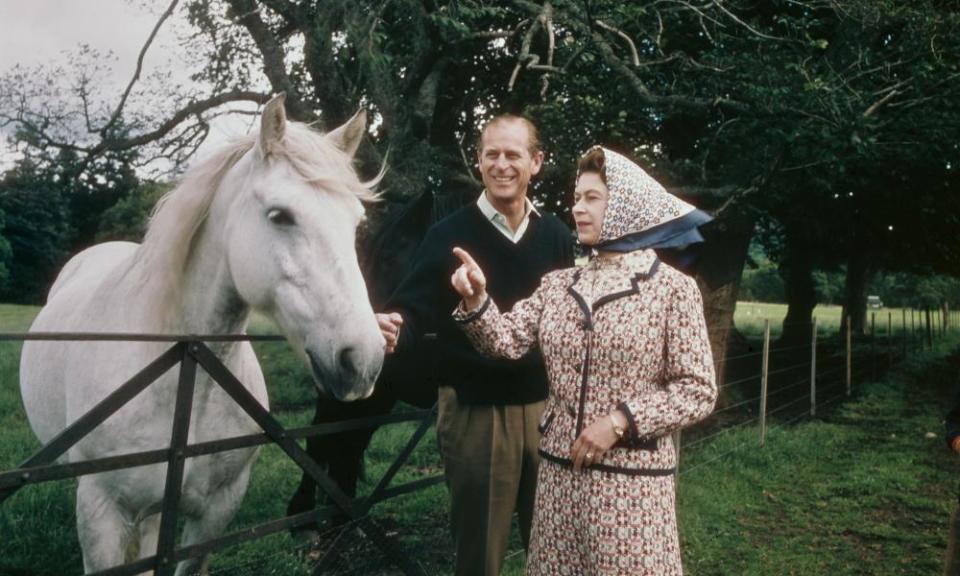Prince Philip: Experts tell of trauma caused by death of a lifelong partner

Meg Blackwood had just turned 22 when she walked down the aisle of a Hampshire church, six years after Princess Elizabeth had married Philip Mountbatten. Like the royal couple, Meg and her new husband, Robert, enjoyed a lifelong partnership, which ended when Robert died three years ago.
Meg, who will be 90 this year, misses and thinks about Robert every day. “He was 95 when he died, so I knew for quite a long time that he was getting towards the end of his life. He had dementia, so I sort of lost him bit by bit – which actually helped because I’d done some of my grieving before he died.”
Nevertheless, after 65 years of marriage, his death was an enormous and wrenching loss. “We met when I was 20 and still living at home. He was my life partner in the truest sense, he’d always been there through my entire adult life. He shaped me, and I shaped him.
“Now I find myself doing things that he did, little rituals that used to irritate me. This is what happens – if you share almost all your life with someone, you lose part of yourself when they’re no longer there, and then you unconsciously retrieve that by taking on some of their personality and ways.
“It’s a hard adjustment. I think about him and miss him every day, and after three years I realise this isn’t going to go away. The thinking is not unhappy, it’s quite comforting – but I’m always conscious that he’s not here, that the house is empty.”
Meg is supported by the couple’s children, grandchildren and now great-grandchildren, but the Covid pandemic has meant she has seen much less of her family and friends. “I’ve spent more time alone in the last year than ever in my life,” she said.
Andy Langford, clinical director of the bereavement charity Cruse, cites a description in Louis de Bernières’ novel Captain Corelli’s Mandolin of two people being together for so long that they are like two trees with separate roots but whose trunk branches have intertwined.
“It’s wonderful, but the shock and trauma when one dies is brutal. It’s one thing to expect or anticipate such loss with your head, and another thing to feel it with your heart.
When two people have shared a life, it’s not just the loss of the individual but of the pattern of their shared life
Andy Langford
“When two people have shared a life together, it’s not just the loss of the individual but also the loss of the pattern of their shared life, the daily rituals, sometimes their social circle.”
For the Queen – who is patron of Cruse – “there are very, very few people who understand what her life is like, and she has just lost one of them. Bereavement is lonely as it is, but probably more so in her situation,” said Langford.
Morgan Vine, head of policy at the charity Independent Age, said older people who lose a partner often have health issues of their own, making it harder to meet up with friends and family. Those who were caring for their partners can experience a loss of purpose in their lives.
“Comments such as ‘well, he made it to 99’ can make the surviving partner feel as though they shouldn’t express their sense of loss. Or if they feel relief that their loved one is no longer in pain or suffering, they might feel guilty about that relief,” she said.
One in 10 bereaved older people – twice as many as the general population – experience “complicated grief”, a recognised condition that can have similar symptoms to post-traumatic stress disorder.
“All the elements that can cause complicated grief have been exacerbated by the Covid pandemic,” she said.
Meg described her lifelong partnership with Robert as a “good marriage”. “You can’t go through 65 years together without a few ups and downs, but we always resolved them,” she said.
Nearly all her surviving friends are also widows, “and all of us are aware that we will never again have that easy companionship that comes from long marriage. That’s a tremendous loss, and everyone has to find their own way through it. But it’s hard.”

 Yahoo Movies
Yahoo Movies 